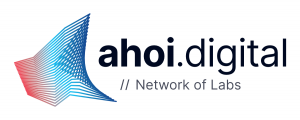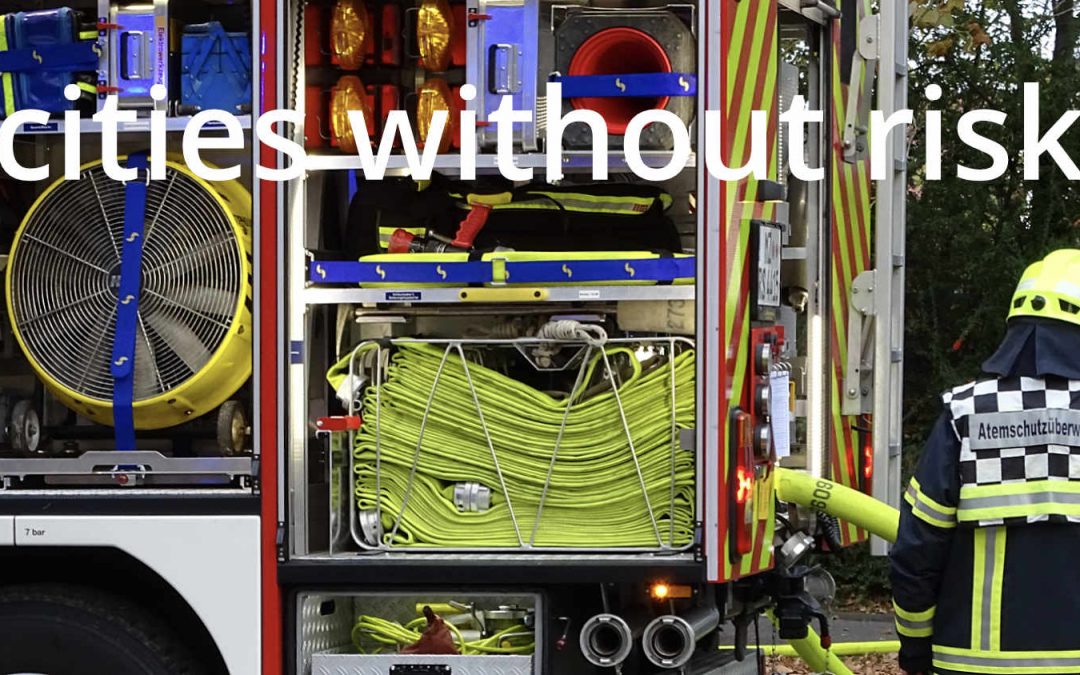How thinking in risks leads to intelligent systems for urban health and infrastructure.
Martin Kohler, Bettina Buth, Klaus-Peter Kossakowski

(vergrößern mit der Maus)
Die Entwicklung der Karte ist hier dokumentiert.
Die Zeitgenössische Stadt ist mit enormen Risiken konfrontiert, besonders soziale und Umweltrisiken. Digitale Technologien werden oft angepriesen als kritische Werkzeuge für einen sicherheits- und effizienzorientierten Umgang mit diesen Risiken. Selbst wenn das einlösbar wäre aus der Sicht des einzelnen Systems wie der digitalen Krankenakte oder einem digitalen Verkehrsleitsystem – was passiert, wenn viele dieser Systeme miteinander interagieren, kollaborieren oder sich bekämpfen?
In unserer Session auf dem City Science Summit 2019 am 2.10.2019 haben wir mit Experten aus den Bereichen Computersicherheit, Verteilten Systemen, Stadtplanung und Kriminologie und Soziologie diese Frage exploriert und eine Karte der Risiken und möglicher Zugänge wie urbane Risiken von digitalen Systemen gemanagt und behandelt werden können. Dabei zielte die Session nicht auf eine Lösung, sonder suchte einen transdisziplinären Rahmen unter dem die Risiken der digitalen Stadt betrachtet und iterativ diskutiert werden können um resiliente Systeme für städtische Infrastrukturen zu entwickeln.
Parallel entstand ein Glossar wichtiger Begriffe, welches sich hier findet und laufend erweitert werden kann:
(Up) Kritis, Action, ADS, Apokalypse, Autonomous Driving, Climate Change, Critical Infrastucture, Data Reliability, Data Science, Dramatization of Risk, Fear, Global Risk Report, Governance, Hazard risk, Hype Cycles, Integrated Perspektives, Interdependability, Internet of Things (IoT), IT-Security, Perceived risk, Post-disciplinary, Post-work, Privacy, Resilience, Risk, Safety, Smart Citizen, Smart City, speculative risk, stakeholder decision, surveillance, technical dystopia, technical utopia, Technology has no moral, Traffic surveillance, trust, unintended consequences, use cultures
https://board.net/p/citieswithoutrisk
Besonders eingeladene Experten waren:
- Prof. Dr. Bettina Buth, HAW Hamburg – Sicherheitskritische Systeme, Safety
- Prof. Dr. Christine Hentschel, Universität Hamburg – Kriminilogie, Sicherheit und Resilienz
- Prof. Dr. Klaus-Peter Kossakowski, HAW Hamburg – Computersicherheit und Verteilte Systeme
—-
Contemporary cities face enormous risks, particularly high levels of mounting social and environmental risks, including social polarization, urban conflicts, terror, health hazards, infrastructure breakdowns, and climate change threats.
Digital technologies play a critical role in minimizing these contemporary risks. Urban spaces equipped with sensors can detect where help is needed, might prevent violence and track unwanted behaviour to make the space more inviting and liveable for all. On the infrastructural level renewable energy is dependent on an intelligent energy network administering the fluctuating resources and balance provision and demand. With the application of digital services the world of urban IT reveals a more complex, fragmented landscape of interconnected systems controlled by various stakeholders, competing and collaborating in dynamic alliances. The vulnerability of the base IT systems is becoming evident and raises critical questions regarding the security of systems whose task is to manage and control risks.
In this session we want to explore questions and approaches how to manage and handle urban risks by digital enabled systems with experts from urban planning, computer science and urban health as a transdisciplinary project.
Rather for solutions, we aim for productive questions to frame a transdisciplinary perspective to create a city without risk in the world of digital heterogeneity in urban infrastructure und urban health.
With:
- Prof. Dr. Bettina Buth, HAW Hamburg – Safety and Critical systems
- Prof. Dr. Christine Hentschel, Universität Hamburg – Criminology, Security and Resilience
- Prof. Dr. Klaus-Peter Kossakowski, HAW Hamburg – Computer security and distributed systems


Neueste Kommentare